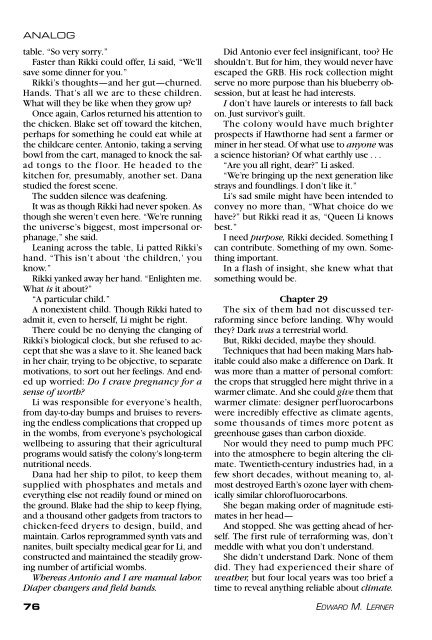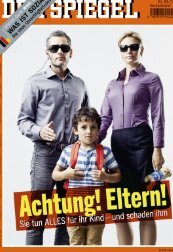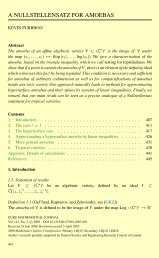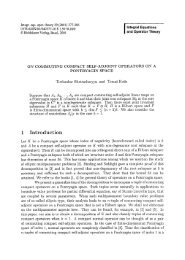Analog Science Fiction and Fact - June 2013
Analog Science Fiction and Fact - June 2013
Analog Science Fiction and Fact - June 2013
You also want an ePaper? Increase the reach of your titles
YUMPU automatically turns print PDFs into web optimized ePapers that Google loves.
ANALOG<br />
table. “So very sorry.”<br />
Faster than Rikki could offer, Li said, “We’ll<br />
save some dinner for you.”<br />
Rikki’s thoughts—<strong>and</strong> her gut—churned.<br />
H<strong>and</strong>s. That’s all we are to these children.<br />
What will they be like when they grow up?<br />
Once again, Carlos returned his attention to<br />
the chicken. Blake set off toward the kitchen,<br />
perhaps for something he could eat while at<br />
the childcare center. Antonio, taking a serving<br />
bowl from the cart, managed to knock the salad<br />
tongs to the floor. He headed to the<br />
kitchen for, presumably, another set. Dana<br />
studied the forest scene.<br />
The sudden silence was deafening.<br />
It was as though Rikki had never spoken. As<br />
though she weren’t even here. “We’re running<br />
the universe’s biggest, most impersonal orphanage,”<br />
she said.<br />
Leaning across the table, Li patted Rikki’s<br />
h<strong>and</strong>. “This isn’t about ‘the children,’ you<br />
know.”<br />
Rikki yanked away her h<strong>and</strong>. “Enlighten me.<br />
What is it about?”<br />
“A particular child.”<br />
A nonexistent child. Though Rikki hated to<br />
admit it, even to herself, Li might be right.<br />
There could be no denying the clanging of<br />
Rikki’s biological clock, but she refused to accept<br />
that she was a slave to it. She leaned back<br />
in her chair, trying to be objective, to separate<br />
motivations, to sort out her feelings. And ended<br />
up worried: Do I crave pregnancy for a<br />
sense of worth?<br />
Li was responsible for everyone’s health,<br />
from day-to-day bumps <strong>and</strong> bruises to reversing<br />
the endless complications that cropped up<br />
in the wombs, from everyone’s psychological<br />
wellbeing to assuring that their agricultural<br />
programs would satisfy the colony’s long-term<br />
nutritional needs.<br />
Dana had her ship to pilot, to keep them<br />
supplied with phosphates <strong>and</strong> metals <strong>and</strong><br />
everything else not readily found or mined on<br />
the ground. Blake had the ship to keep flying,<br />
<strong>and</strong> a thous<strong>and</strong> other gadgets from tractors to<br />
chicken-feed dryers to design, build, <strong>and</strong><br />
maintain. Carlos reprogrammed synth vats <strong>and</strong><br />
nanites, built specialty medical gear for Li, <strong>and</strong><br />
constructed <strong>and</strong> maintained the steadily growing<br />
number of artificial wombs.<br />
Whereas Antonio <strong>and</strong> I are manual labor.<br />
Diaper changers <strong>and</strong> field h<strong>and</strong>s.<br />
Did Antonio ever feel insignificant, too? He<br />
shouldn’t. But for him, they would never have<br />
escaped the GRB. His rock collection might<br />
serve no more purpose than his blueberry obsession,<br />
but at least he had interests.<br />
I don’t have laurels or interests to fall back<br />
on. Just survivor’s guilt.<br />
The colony would have much brighter<br />
prospects if Hawthorne had sent a farmer or<br />
miner in her stead. Of what use to anyone was<br />
a science historian? Of what earthly use . . .<br />
“Are you all right, dear?” Li asked.<br />
“We’re bringing up the next generation like<br />
strays <strong>and</strong> foundlings. I don’t like it.”<br />
Li’s sad smile might have been intended to<br />
convey no more than, “What choice do we<br />
have?” but Rikki read it as, “Queen Li knows<br />
best.”<br />
I need purpose, Rikki decided. Something I<br />
can contribute. Something of my own. Something<br />
important.<br />
In a flash of insight, she knew what that<br />
something would be.<br />
Chapter 29<br />
The six of them had not discussed terraforming<br />
since before l<strong>and</strong>ing. Why would<br />
they? Dark was a terrestrial world.<br />
But, Rikki decided, maybe they should.<br />
Techniques that had been making Mars habitable<br />
could also make a difference on Dark. It<br />
was more than a matter of personal comfort:<br />
the crops that struggled here might thrive in a<br />
warmer climate. And she could give them that<br />
warmer climate: designer perfluorocarbons<br />
were incredibly effective as climate agents,<br />
some thous<strong>and</strong>s of times more potent as<br />
greenhouse gases than carbon dioxide.<br />
Nor would they need to pump much PFC<br />
into the atmosphere to begin altering the climate.<br />
Twentieth-century industries had, in a<br />
few short decades, without meaning to, almost<br />
destroyed Earth’s ozone layer with chemically<br />
similar chlorofluorocarbons.<br />
She began making order of magnitude estimates<br />
in her head—<br />
And stopped. She was getting ahead of herself.<br />
The first rule of terraforming was, don’t<br />
meddle with what you don’t underst<strong>and</strong>.<br />
She didn’t underst<strong>and</strong> Dark. None of them<br />
did. They had experienced their share of<br />
weather, but four local years was too brief a<br />
time to reveal anything reliable about climate.<br />
76 EDWARD M. LERNER

















